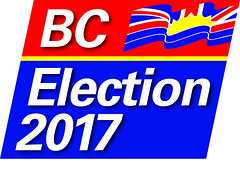Sixth in a series of Black Press B.C. election coverage leading up to May 9.
Warnings and attack ads are flying daily from B.C. political leaders about what their rivals have planned for taxes, as the May 9 election approaches.
Sorting out the choices requires comparing the fine print in party platforms, and also identifying what is not mentioned, and therefore open to a future government.
Here is a comparison of what the parties are offering.
Who’s going to raise the carbon tax on fuels faster?
The B.C. Greens would start increasing carbon tax on Jan. 1, 2018, by $10 a tonne per year for four years. At the current $30 per tonne, the tax adds seven cents to the price of a litre of gasoline.
The Greens would also end revenue neutrality, the B.C. Liberal legislation that requires each carbon tax increase to be offset by reductions in personal and business income taxes.
The B.C. NDP would begin raising carbon tax in 2020, also in $10 annual increments, a year ahead of the federal government mandate of $50 a tonne by 2022. The NDP would also stop offsetting income tax reductions, and divert new carbon tax revenue to transit and other projects.
The B.C. Liberals are touting a carbon tax “freeze” at current levels until 2021, when two $10 increases would be needed to meet the federal deadline. Premier Christy Clark has pledged to continue adjusting income tax so the province gains no net revenue from carbon tax.
READ: Fraser Institute challenges revenue neutral claim of B.C.’s carbon tax
Who’s going to increase personal income taxes?
The B.C. Green platform proposes to raise an additional $200 million a year from people earning $100,000 a year or more, starting in 2018. The Greens’ commitments to eliminate Medical Services Plan premiums also imply higher income tax rates for higher income earners.
The B.C. NDP promises to immediately restore a surtax on incomes greater than $150,000 a year, which was imposed by the B.C. Liberals for two years to reduce deficits, and expired in 2015. As with the Greens, the NDP carbon tax and MSP commitments also imply higher income tax rates than the B.C. Liberal plan.
The B.C. Liberals pledge to freeze income tax rates, along with carbon tax rates, for the entire four-year term of the next government. Their plan to eliminate MSP premiums has no deadline, and depends on increased revenue from economic growth with rates held at present levels.
Who’s going to raise or lower business taxes?
The B.C. Greens would increase large corporate income tax by one per cent, and raise an additional $100 million in their first fill year through natural resource royalties, fees and licences.
The B.C. NDP promises to reduce the small business tax rate by half a point, from 2.5 per cent down to two per cent. Large corporate income tax rate would rise from 11 to 12 per cent, which the party says would still leave B.C. with the third lowest rate in Canada.
The B.C. Liberals lowered the small business tax rate from 2.5 to two in their pre-election budget, which would take effect retroactive to April 1 this year if they are re-elected on May 9. They propose no change to the 11 per cent large corporate rate.
Who’s going to raise provincial sales tax?
No major party has indicated a plan to raise or lower the provincial sales tax, currently set at seven per cent. The only proposed change to provincial sales tax in this election is the B.C. Liberal pledge to remove PST from all business electricity bills. Premier Christy Clark has accelerated that promise to next year, to help sawmills and pulp mills that are among the largest industrial electricity users.

